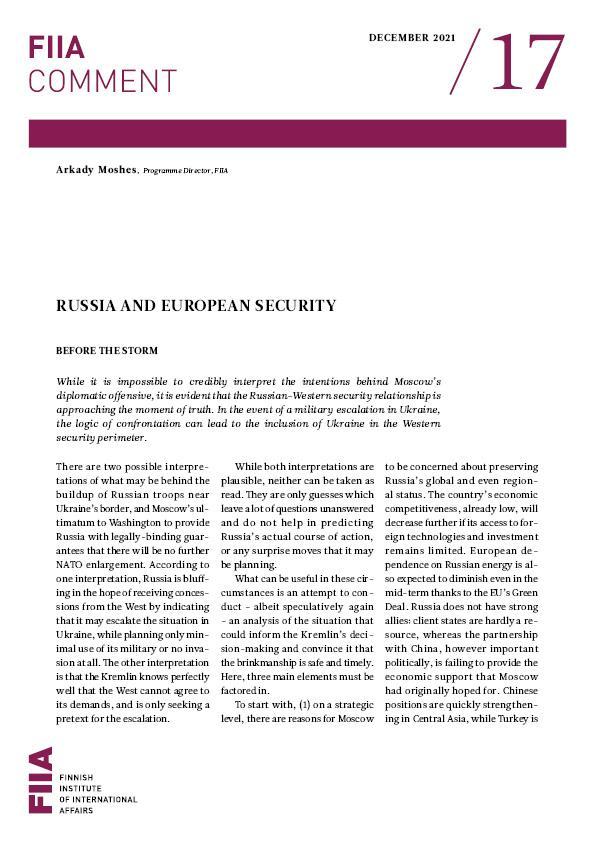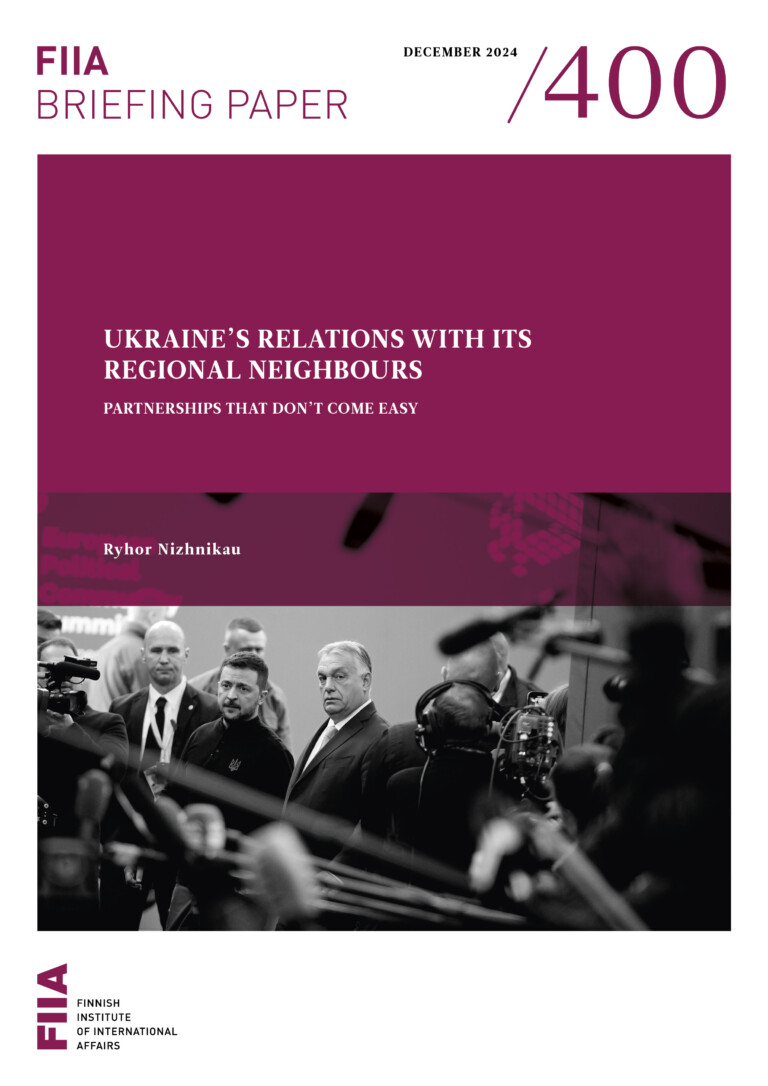Western assistance for Ukraine has been significant but still insufficient. Western decision-makers should realize that increasing economic, political, military, diplomatic and moral support for Ukraine is necessary to sustain peace in Europe.
The staunch resistance mounted by the Ukrainian people against Russia’s invasion was as surprising for Western capitals as it was for Moscow. Ukraine’s President Volodymyr Zelenskyy’s now famous retort – “I need ammunition, not a ride” – was apparently not what the West was expecting to hear in response to a proposal made to him to flee Kyiv.
Western economic sanctions against Russia were discussed in advance, but non-economic measures were apparently not agreed upon, and this is where the weaknesses of the approach were immediately manifest.
Military-technical support was delayed or simply not provided. Ukrainians’ frustration in this regard is easy to understand. If Ukraine were to receive a fighter jet or an air defence complex every time Zelenskyy received a standing ovation in a Western parliament, the situation in Ukraine’s airspace and possibly on all fronts in general would be different.
On the other hand, NATO’s reaction is also understandable. The difference between members of a defence alliance and partners is axiomatic. While the former can rely on firm obligations, the latter, lamentable as it is, can automatically count on good words and prayers only.
Less understandable is Western reluctance to signal unequivocal political commitment. Promising Ukraine an EU membership perspective would mean little in practice. After all, the necessary conditionality could be applied later, during the accession talks. But it would be an encouraging symbol of belonging and unity. However, the EU’s response to Ukraine’s membership application submitted on February 28 was very vague, to say the least.
But most problematic is the acceptance by ruling European elites of behaviour that undermines societal solidarity with Ukraine. Nobody can force former German chancellor Gerhard Schröder, the embodiment of the pro-Putin stance in Europe, to resign from his sinecures in Russian energy champions. But nobody can prevent the German Social Democratic Party from expelling him from its ranks either. Yet such an initiative has not yet been undertaken. For many European companies – primarily French retail giants – it is business as usual in Russia, in the absence of vociferous criticism from their respective governments.
It goes without saying that the fate of Ukraine will primarily be decided by its people and its military. However, the Western position and actions will be of direct relevance when the outcome of the ongoing peace talks comes into question. Both Kyiv and Moscow will try to figure out what is and is not acceptable for the West, and these interpretations will affect the end result. For example, Kyiv’s willingness to drop its NATO aspirations and to agree to discuss a neutral status, which has arguably weakened Ukraine’s bargaining position, stems from the belief that NATO was never going to admit Ukraine.
A major risk now is that seeing or sensing contradictions in the Western position and presuming that the West would prefer a quick ceasefire agreement, Ukrainian negotiators will agree to a deal that would clearly not be optimal for their country. This could include, for instance, the continuing presence of Russian troops and at least a partial lifting of Western sanctions.
This would be a repetition of the Minsk 2 pattern of February 2015, when Berlin and Paris invested their diplomatic capital in a stillborn agreement that was totally unacceptable for the Ukrainians, and rewarded the side that had resumed the hostilities – Russia.
If a similar choice of a quick deal over a comprehensive and implementable agreement was to be made now by Ukraine and the West, there is little doubt that the war would escalate again in the near future. Only this time Russia would be better prepared and would not repeat the mistakes made in 2022.
Instead, it is necessary to ensure that the agreement would not simply restore the status quo ante bellum, but significantly improve the security situation of Ukraine compared with 23 February. For this to happen, time should unquestionably start working for Ukraine, which is not yet the case if one looks at the loss of lives, flows of refugees, or economic destruction.
There is much that the West can do in this regard. First, it should increase its economic, political, military, diplomatic and moral support for Ukraine, and signal that accordingly. Second, it should not put any pressure on Kyiv, advising it to accept a bad deal which could potentially lead to political discord within Ukraine, and particularly a crisis caused by the need to revise a constitutional clause on NATO membership. Third, the West should make it clear to Moscow that economic sanctions will not be lifted easily, while continuing to work on strengthening Europe’s energy and military security. Fourth, it should consider what kind of real security guarantees individual Western countries, or NATO as a whole, may be ready to offer if Ukraine chooses a non-bloc status. Nice-looking “assurances” will no longer suffice. They failed in the past and will fail again.
Without a sustainable peace in Ukraine, there will be no peace in Europe. It is high time that Western politicians realized this.







